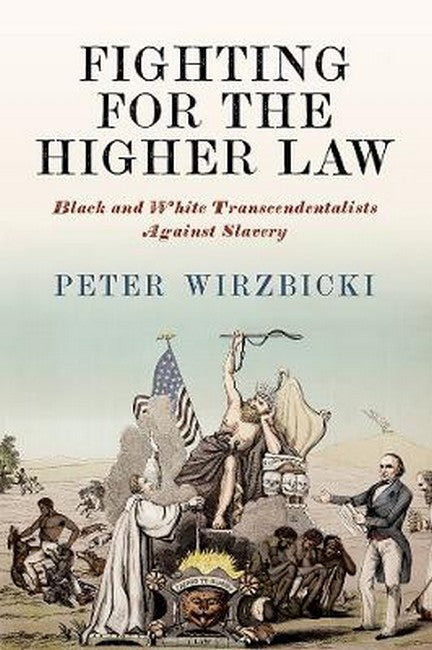Peter Wirzbicki is Assistant Professor of History at Princeton University.
Request Academic Copy
Please copy the ISBN for submitting review copy form
Description
"Fighting for the Higher Law: Black and White Transcendentalists Against Slavery, centers abolitionism in the story of American Transcendentalists. . . . The author is among a growing number of historians who have refocused the study of antislavery directly on the activism of African Americans themselves, as opposed to the "bourgeois liberalism" of white reformers. . . . Wirzbicki's book reads as a kind of history of public philosophy in America." (Intellectual History Review) "The effort to correct a whitewashed understanding of American Transcendentalism takes a giant step forward with Fighting for the Higher Law. Peter Wirzbicki has gifted us a richly detailed and revelatory study that restores Black thinkers and antislavery networks to Transcendentalism...The book offers us a new vision of the American crowd and celebrates within it each and all who kept with perfect sweetness the commitment to equality." (American Literary History) "[A]n important contribution to the history of both Transcendentalism and radical abolitionism, as well as to intellectual history as a discipline...[I]t expertly describes intellectual and political life as the converging point of different forces and currents produced by a diverse cast of characters and sites and that is not centered exclusively on white male canonical authors or institutions, without flattening the intricacies and sometimes deadlocks of movements built across gender, race, and class lines." (Journal of Southern History) "In his lucid, well-researched intellectual history, Wirzbicki, underscores the nexus between the philosophy of New England transcendentalism and the politics of abolitionism.... By centering abolitionism within the history of transcendentalism, and transcendentalism within the abolitionist crusade, Wirzbicki advances understanding of these two pillars of reform ideology and action in New England, in antebellum and Civil War-era America generally, and in the work of 20th-century racial reformers W. E. B. Du Bois and Martin Luther King, Jr." (Choice) "In these pages, with an eloquence worthy of William Cooper Nell and Ralph Waldo Emerson, Peter Wirzbicki urges us to hear the hidden harmonies between abolitionist and Transcendentalist thought, while never failing to notice the dissonances, too. This is an inspiring book that ranges as widely as the thinkers it follows. It demonstrates anew why intellectuals and the life of the mind mattered in the struggle to end slavery." (Caleb McDaniel, Pulitzer Prize-winning author of Sweet Taste of Liberty: A True Story of Slavery and Restitution in America) "Peter Wirzbicki brilliantly rescues Transcendental abolitionists from the caricatures and myths that surround their history. Perhaps the most original contribution he makes is to foreground the forgotten intellectual and political contributions of African American Transcendentalists. This astute book will forever change the way we think about Transcendentalism and foreground its antislavery contributions to the American radical democratic imagination." (Manisha Sinha, author of The Slave's Cause: A History of Abolition)

